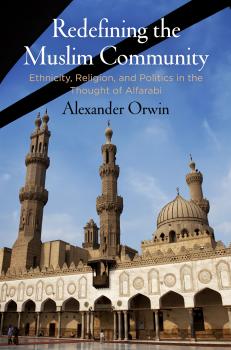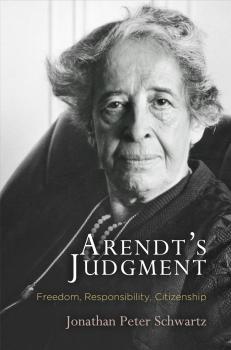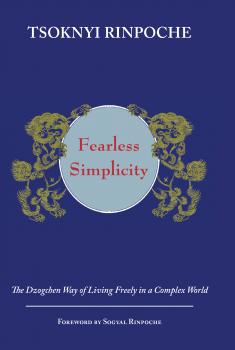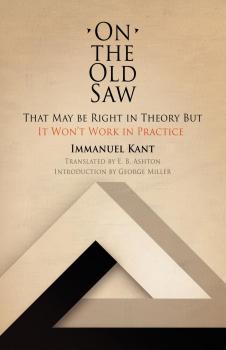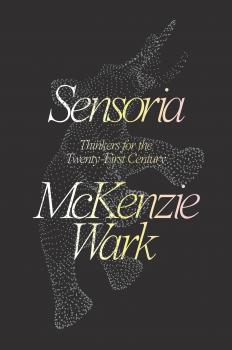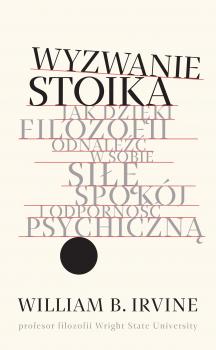Афоризмы и цитаты
Различные книги в жанре Афоризмы и цитатыRedefining the Muslim Community
Writing in the cosmopolitan metropolis of Baghdad, Alfarabi (870-950) is unique in the history of premodern political philosophy for his extensive discussion of the nation, or Umma in Arabic. The term Umma may be traced back to the Qur'ān and signifies, then and now, both the Islamic religious community as a whole and the various ethnic nations of which that community is composed, such as the Turks, Persians, and Arabs. Examining Alfarabi's political writings as well as parts of his logical commentaries, his book on music, and other treatises, Alexander Orwin contends that the connections and tensions between ethnic and religious Ummas explored by Alfarabi in his time persist today in the ongoing political and cultural disputes among the various nationalities within Islam. According to Orwin, Alfarabi strove to recast the Islamic Umma as a community in both a religious and cultural sense, encompassing art and poetry as well as law and piety. By proposing to acknowledge and accommodate diverse Ummas rather than ignoring or suppressing them, Alfarabi anticipated the contemporary concept of «Islamic civilization,» which emphasizes culture at least as much as religion. Enlisting language experts, jurists, theologians, artists, and rulers in his philosophic enterprise, Alfarabi argued for a new Umma that would be less rigid and more creative than the Muslim community as it has often been understood, and therefore less inclined to force disparate ethnic and religious communities into a single mold. Redefining the Muslim Community demonstrates how Alfarabi's judicious combination of cultural pluralism, religious flexibility, and political prudence could provide a blueprint for reducing communal strife in a region that continues to be plagued by it today.
Arendt's Judgment
In Arendt's Judgment , Jonathan Peter Schwartz explores the nature of human judgment, the subject of the planned third volume of Hannah Arendt's The Life of the Mind , which was left unwritten at the time of her death. Arguing that previous interpretations of Arendt failed to fully appreciate the central place of judgment in her thought, Schwartz contends that understanding Arendt's ideas requires not only interpreting her published work but also reconstructing her thinking from a broader range of sources, including her various essays, lecture course notes, unpublished material, and correspondence. When these sources are taken into account, it becomes clear that, for Arendt, political judgment was the answer to the question of how human freedom could be realized in the modern world. This new approach to understanding Arendt leads to what Schwartz argues are original insights Arendt can teach us about the nature of politics beyond sovereignty and the role of human agency in history. Above all, her novel understanding of the authentic nature and purpose of political philosophy is finally revealed. Schwartz claims that in her theory of political judgment Arendt presented a vision of political philosophy that is improved and deepened by the contributions of ordinary, active citizens. Along with challenging previous interpretations, Arendt's Judgment provides a roadmap to her published and unpublished work for scholars and students.
The Socratic Turn
The Socratic Turn addresses the question of whether we can acquire genuine knowledge of good and evil, right and wrong. Reputedly, Socrates was the first philosopher to make the attempt. But Socrates was a materialistic natural scientist in his youth, and it was only much later in life—after he had rejected materialistic natural science—that he finally turned, around the age of forty, to the examination of ordinary moral and political opinions, or to moral-political philosophy so understood. Through a consideration of Plato's account of Socrates' intellectual development, and with a view to relevant works of the pre-Socratics, Xenophon, Aristotle, Hesiod, Homer, and Aristophanes, Dustin Sebell reproduces the course of thought that carried Socrates from materialistic natural science to moral-political philosophy. By doing so, he seeks to recover an all but forgotten approach to the question of justice, one still worthy of being called scientific.
Fearless Simplicity
Fearless Simplicity is about training in the awakened state of mind, the atmosphere within which all difficulties naturally dissolve. Here, the gifted Tibetan meditation master and author of Carefree Dignity, Drubwang Tsoknyi Rinpoche, in his exceptional and skillful teaching style, guides us through the methods to be at ease with our surroundings and ourselves. He shows us how to de¬velop confidence and be in harmony with every situation as the basis for true compassion and intelligence.As confidence grows stronger, you find yourself turning into a real warrior — a compassionate bodhisattva warrior. The true bodhi¬sattva spirit grows out of this personal sense of freedom. With this sense of security and freedom, you begin to direct your attention to the needs of others. The compassion expands. This is my point about inner simplicity as the basis for living fearlessly in a complex world. We are now open and spacious and from within that sense of fearless simplicity, you can accommodate all phenomena. You can naturally care for others unpretentiously; no one is a threat any longer.— Drubwang Tsoknyi Rinpoche
On the Old Saw
In this famous essay, first published in 1793, Kant considers the alleged conflict between theory and practice in the conduct of human affairs in three widening contexts: those of the common person faced with a moral decision, of the politician and the citizen concerned with the extent and limits of political obligation, and, finally, of the citizen of the world whose actions have a bearing on war and peace among nations. Unlike other animals, Kant reminds us, people must decide how they will live their lives. They therefore ask for a guide to action, a set of principles—a theory. From the outset, Kant rejects the ancient claim that the practical possibilities of action cannot always be reconciled with moral demands. He offers his own moral theory, a theory starting out from the principle of the right as an unequivocal guide to action. In partial disagreement with the rival theories of Hobbes and Locke, he proposes that the only condition under which the individual can achieve true destiny as a person and a member of the human race is the civil state. Such a state can be secured only by law. Although «from such crooked wood as man is made of, nothing perfectly straight can be built,» only the rule of law can bring about a stable society. Last, Kant turns to the relation between theory and practice in international relations. «Nowhere,» he writes, «does human nature appear less lovable than in the relation of whole nations to each other.» But to hope for world peace on the basis of «the so-called balance of power is a mere chimera.» There is no other remedy to international lawlessness and war than an international coercive law, and such law can grow only out of sound theory. «I put my trust in theory. At the same time, I trust in the nature of things, and also take account of human nature, which I cannot, or will not, consider so steeped in evil that in the end reason should not triumph.»
In Statu Nascendi
In Statu Nascendi is a new peer-reviewed journal that investigates specific issues through a socio-cultural, philosophical, and anthropological approach to raise a new type of civic awareness about the complexity of the contemporary crisis, instability, and warfare situations, where the “stage of becoming” plays a vital role.
Issue 2019:1 comprises, amongst others, the following articles:
– An Interview with Marcin Grabowski on the Political Situation in Asia in General and North Korea in Particular
– The EU and the Migration Crisis: ‘The EU-Turkey Deal’: Policy Effectiveness and Challenges of Implementation
– The Syrian Conflict (2011–2017): How a Perfectly Winnable Uprising has been Transformed into a Civil War, Only to End up as a Ferocious Proxy War
– Interview with Prof. Maria Dimitrova on Continental Philosophy in General and Emmanuel Levinas’ Philosophy in Particular
– Patristic Tradition, Criterialism, and Levinasian Quasi-Theological Conditions of the Self
– Reconsidering the Notion of the Creative Genius in Postmodern Philosophy and Art
In Statu Nascendi
In Statu Nascendi is a new peer-reviewed journal that aspires to be a world-class scholarly platform encompassing original academic research dedicated to the circle of Political Philosophy, Cultural Studies, Theory of International Relations, Foreign Policy, and the political Decision-making process. The journal investigates specific issues through a socio-cultural, philosophical, and anthropological approach to raise a new type of civic awareness about the complexity of contemporary crisis, instability, and warfare situations, where the “stage-of-becoming” plays a vital role.
Issue 2018:1 comprises, amongst others, the following articles:
· Corporate Instrumentalization of Deliberative Democracy in Global Governance
· Being Transgender and Transgender Being
· A Comparative Study between Levinas and Kierkegaard on Subjectivity and the Self
· The Kremlin’s Reaction to the St. Petersburg Metro Attacks seen through the Prism of Russian Intervention in Syria
· Donald Trump's visit to Saudi Arabia, Saudi-Iranian Relations, and the Future of the Iranian Nuclear Deal
· The United Kingdom on the Verge of a “Constitutional Crisis”: Between the Possibility of a Second Referendum on the Membership in the European Union and a Potential Second Vote on Scottish Independence
Sensoria
As we face the compounded crises of late capitalism, environmental catastrophe and technological transformation, who are the thinkers and the ideas who will allow us to understand the world we live in? McKenzie Wark surveys three areas at the cutting edge of current critical thinking: design, environment, technology and introduces us to the thinking of nineteen major writers. Each chapter is a concise account of an individual thinker, providing useful context and connections to the work of the others. The authors include: Sianne Ngai, Kodwo Eshun, Lisa Nakamura, Hito Steyerl, Yves Citton, Randy Martin, Jackie Wang, Anna Lowenhaupt Tsing, Achille Mbembe, Deborah Danowich and Eduardo Viveiros de Castro, Eyal Weizman, Cory Doctorow, Benjamin Bratton, Tiziana Terranova, Keller Easterling, Jussi Parikka. Wark argues that we are too often told that expertise is obtained by specialisation. Sensoria connects the themes and arguments across intellectual silos. They explore the edges of disciplines to show how we might know the world: through the study of culture, the different notions of how we create such things, and the impact that the machines that we devise have had upon us. The book is a vital and timely introduction to the future both as a warning but also as a road map on how we might find our way out of the current crisis.
Afrocubanas
Originally published in Spanish and edited by Cuban historian Daisy Rubiera Castillo and playwright and theater critic Inés María Martiatu Terry, this ground-breaking edited collection is the first work of its kind. It places the experiences of black and mulata women at the center of Cuban history. Including essays from a mix of well-known and newly published Cuban authors, the volume examines the lives of Afrocubanas from the late nineteenth century to the present. The volume’s contributors collect and interrogate the voices of black Cuban women and the political, cultural, social, and ideological contributions they have made to the history of their nation. One of the unique qualities of Afrocubanas is that the text is the product of a grassroots community working group in Havana. A number of antiracist organizations emerged to fight racial inequality in light of Cuba’s new economic challenges after the fall of its chief trading partner, the Soviet Union in 1991. But, the Afrocubanas Project (founded in the mid-2000s) is one of the few groups that challenges racism and sexism together. The members of the Afrocubanas Project hail from a variety of professions, ages, and sexual orientations. They share a collective interest in challenging negative stereotypes about black women. This volume merges their activism and scholarship to offer a counter discourse to existing narratives about black women in Cuba while also creating and disseminating new knowledge about Afrocubanas. There is no other published work in English devoted to analyzing the political and intellectual dimensions of black Cuban women’s thought across the island’s history. This text is essential reading for scholars and students of Africana Studies, Afro-Latin American Studies, Caribbean history, and courses focusing on black women in the Atlantic region.
